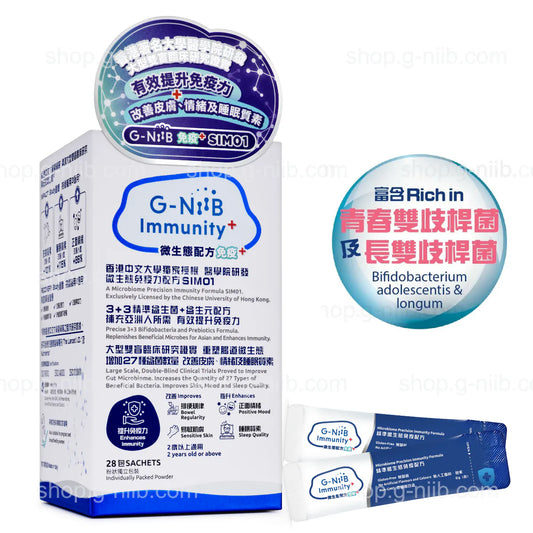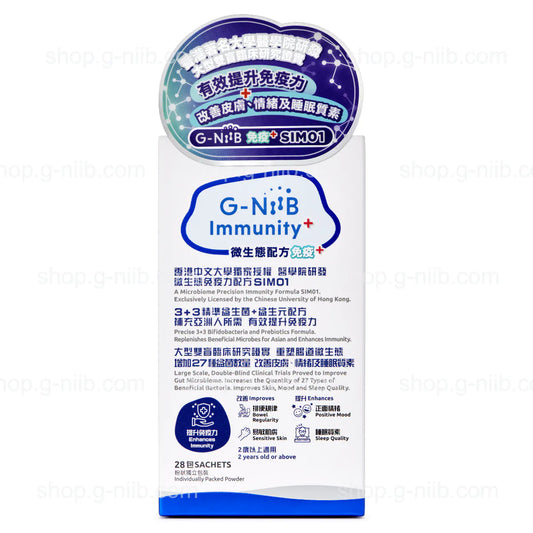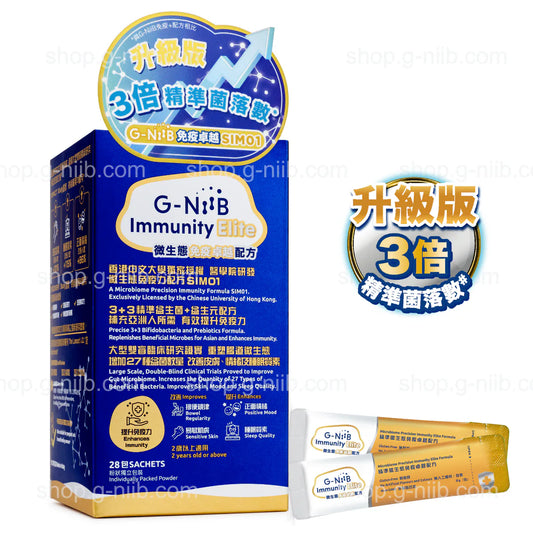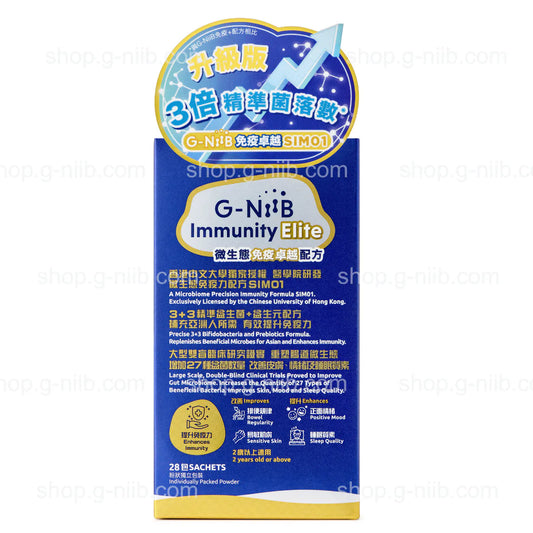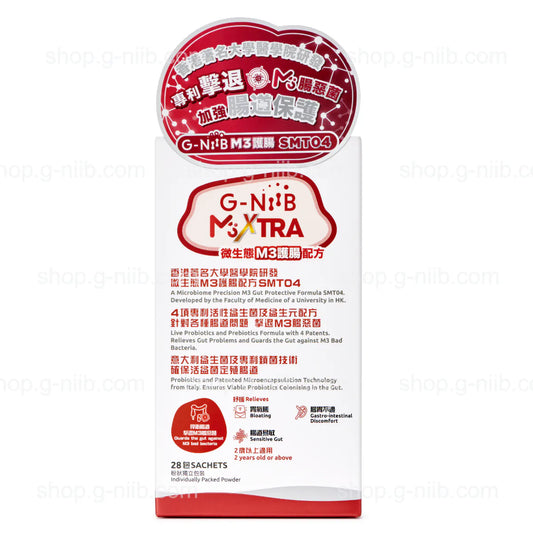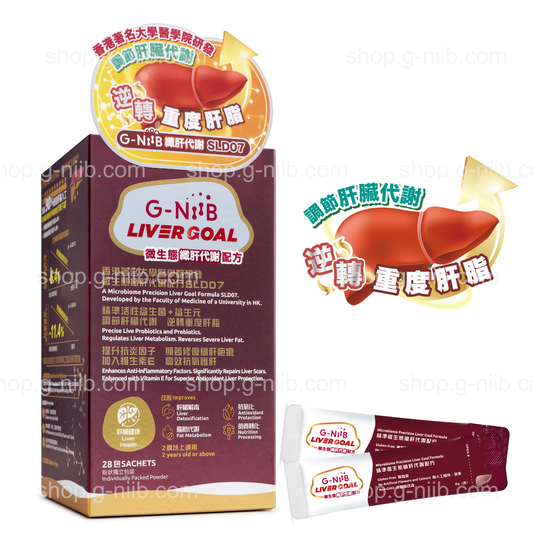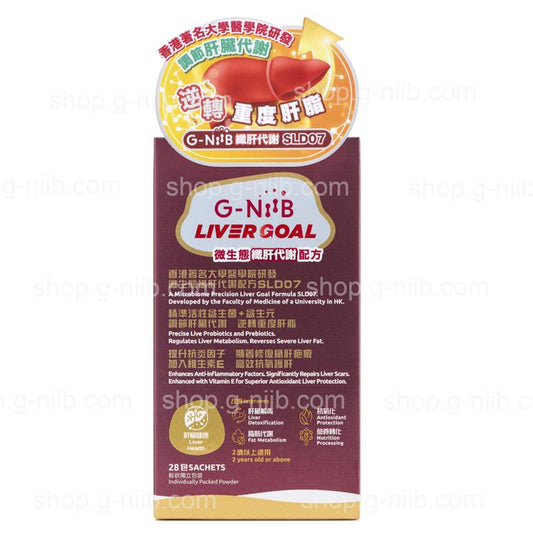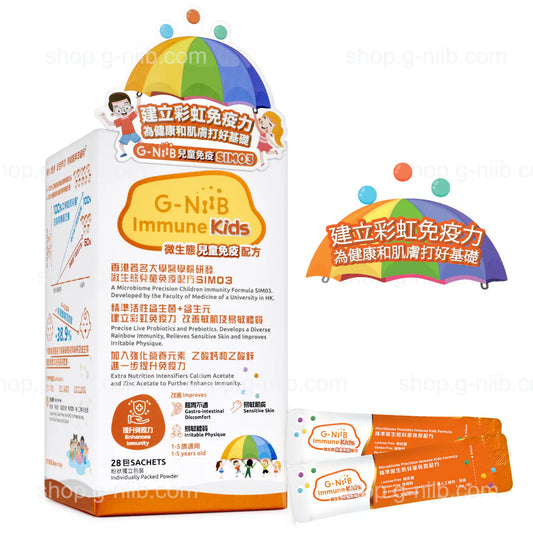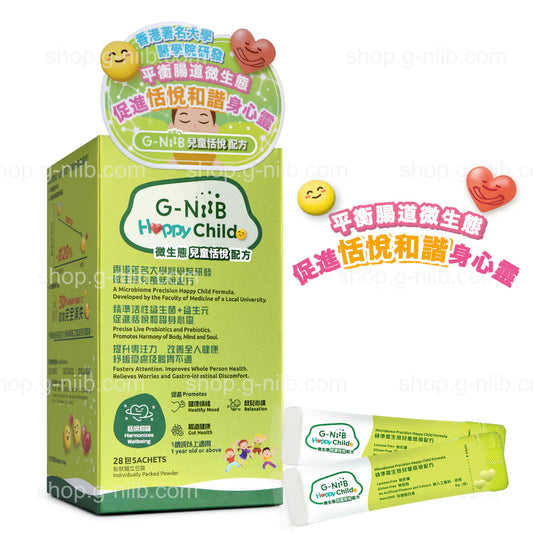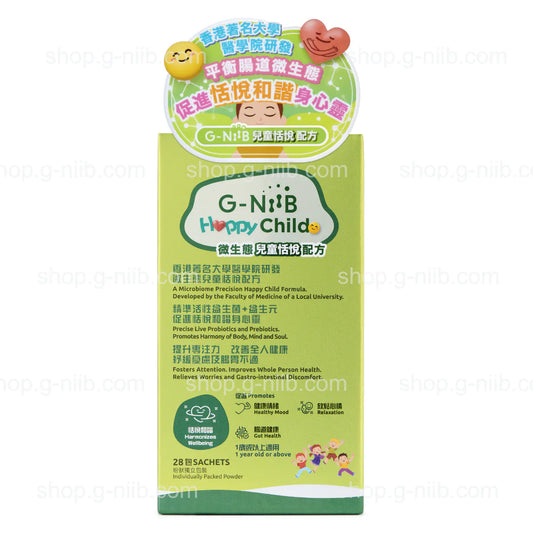Product Categories

Improve Immunity
Learn more
Enhance Gut Protection
Learn more
Improve Skin Health
Learn more
Improve Mental Health
Learn more
Regulate Liver Metabolism
Learn moreBest Sellers
Highly Recommended by Users
Why Choose G-NiiB
Developed and clinically proven by the
Faculty of Medicine of a Renowned University in Hong Kong.
It has been clinically proven safe and effective.
Made in Italy
Patented microencapsulation technology from Italy, protect live probiotic against gastric acid and ensure colonizing in the gut, improves probiotics survival rate up to 250% and enhances probiotics colonization (CFU) up to 5 times
Won Multiple International Awards such as Gold Medal at Geneva International Exhibition of Inventions, NutraIngredients-Asia Awards and the Gold Award at the Silicon Valley International Invention Festival (SVIIF), etc.
Achieved Professional Qualifications such as ISO9001, ISO14001 and ISO22000, etc.
Worry-free (Gluten-free, non-GMO, no preservatives, no artificial flavors and colors)
Media Coverage






















